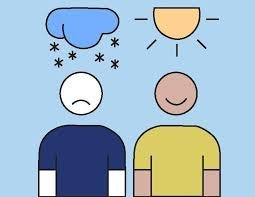
Blog
What Are the Stages of Grief?
According to Dr. Elisabeth Kubler-Ross, everyone experiences five stages of grief. Understanding these stages may shine some light on emotions you may be experiencing after a loss.
The Health Benefits of Having a Pet
Ask any animal lover, and they will likely tell you that having a pet benefits their health and well-being. Nonetheless, the benefits of pets are more than just anecdotal. Pets positively impact health including decreasing cortisol, lowering blood pressure, reducing loneliness, and improving mood.
The Power of Relationships
Social connections can lower anxiety and depression, boost immunity, and may even lengthen lifespan. The reverse is also true. Loneliness can decrease a sense of contentment, disrupt sleep, increase cortisol (a stress hormone), and elevate blood pressure. Positive relationships are a primary contributor to health, happiness, and longevity.
Is it Spring Yet? Coping with Seasonal Affective Disorder
Seasonal affective disorder (SAD) is a form of depression characterized by its recurrent seasonal pattern where a person experiences mood changes during the fall and winter months. Learn cognitive and behavioral strategies to cope with SAD.
CBT for Joy
Exercise not only reduces depression and improves physical health but it can also increase joy! Certain physical movements that mimic "joyful movements" can generate those same positive emotions even in the absence of those events.
Light Therapy for Seasonal Affective Disorder
People with seasonal affective disorder (SAD) and those who notice negative seasonal mood shifts might want to plan ahead for the long winter.
What is Psychological Flexibility and Why is it Important?
People think that the opposite of depression is happiness. However, according to Acceptance and Commitment Therapy, the opposite of depression is psychological flexibility.







